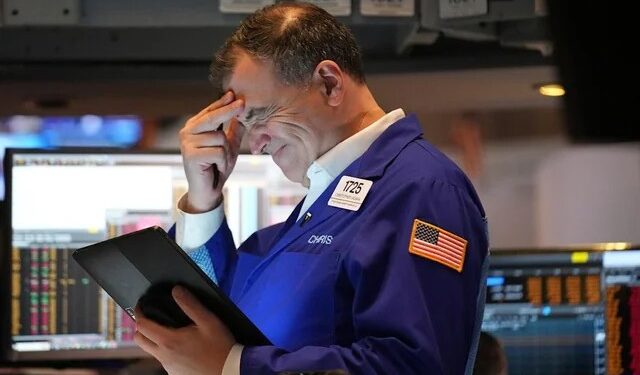1. Bank ‘should cut UK interest rates to at least 4% in May amid tariff turmoil’
Former Bank of England deputy governor Charlie Bean has called for an aggressive interest rate cut of at least 0.5 percentage points to 4% in May, in response to global financial turmoil sparked by President Donald Trump’s new trade tariffs. The tariffs, which apply a minimum 10% charge on all U.S. imports and higher rates for the EU (20%) and China (34%), have destabilized financial markets and are likely to delay investment and reduce consumer spending. Bean emphasized the need for swift central bank action to mitigate the economic shock.
2. Market stress signals are flashing bright
Global financial markets are exhibiting strong signs of stress amid escalating tariff tensions and significant equity market losses. The VIX, Wall Street’s fear index, surged to 60—the highest since a major selloff in August—and experienced its most significant daily jump since the COVID-19 crisis. European volatility indices also showed their largest spike since the 2008 financial crisis. Additionally, global bank stocks have plummeted, with European and Japanese banks losing around 20% of their value in just three sessions.
3. European markets on track to rebound as Trump and China exchange tariff threats
Global markets are experiencing significant volatility due to escalating trade tensions between the U.S. and China. President Trump has threatened to impose an additional 50% tariff on Chinese goods following Beijing’s retaliatory 34% tariff. Despite the turmoil, European markets, including the FTSE 100 and Germany’s DAX, are set for a rebound. Wall Street futures also point upwards, indicating a potential recovery.
4. Tuesday briefing: How the UK will tackle Trump’s tariffs – but is it enough to limit the pain?
The UK is grappling with the economic uncertainties triggered by U.S. President Trump’s aggressive tariff policies, including a proposed 50% increase on Chinese imports. Prime Minister Keir Starmer has outlined modest domestic interventions aimed at buffering the UK’s automotive and pharmaceutical sectors. However, these steps are widely perceived as insufficient against the broader economic threat. The UK’s delay in rolling out a full industrial strategy exacerbates its vulnerability in this changing economic landscape.
5. Trump’s tariffs are ‘teeing up a nationwide recession’, says Chuck Schumer
On April 7, 2025, U.S. President Donald Trump faced widespread backlash over his sweeping tariffs, which sent global markets into turmoil. Senate Minority Leader Chuck Schumer and other Democrats warned of a “nationwide recession,” calling the tariffs a massive tax on Americans. Economists have increased the odds of a recession, and international figures have signaled a desire for negotiations amid fears of economic fallout.
Summary by newshub-finance



Recent Comments